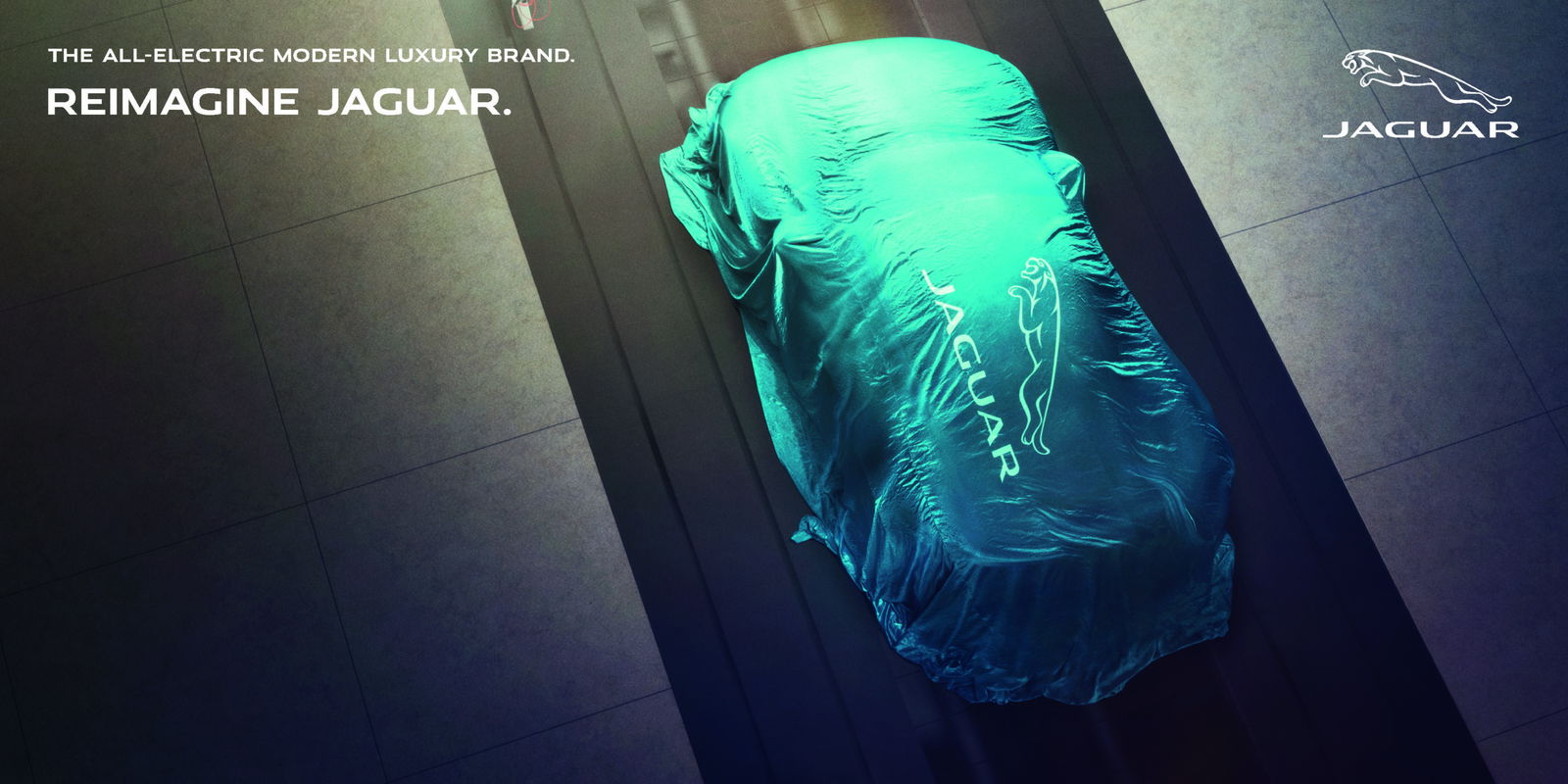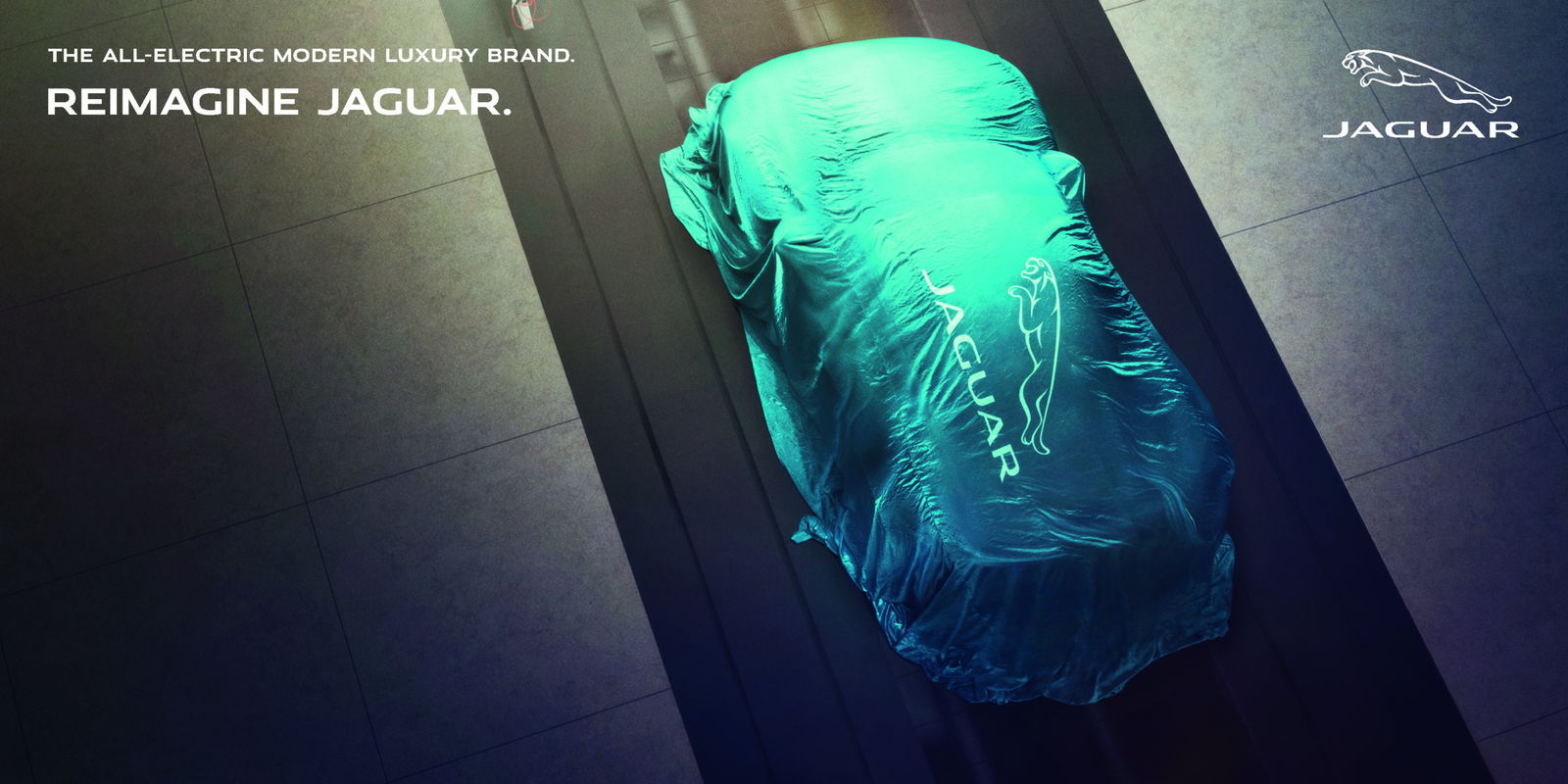
Jaguar will tear it all down and start again.
The British brand may have 85 years of building sporty and luxurious petrol-powered cars, but by 2025 it will be all-electric. It’s part of a bold strategy dubbed ‘Reimagine’ by newly installed CEO, Thierry Bolloré. It comes as more and more governments around the world look to restrict or ban petrol and diesel powered cars (with Jaguar’s home country, the UK, announcing a ban by 2030) and amid a sales downturn for the leaping car brand.
The new plan means the brand synonymous for its sonorous six-cylinder and snarling V8s will be strictly battery-powered within the next four years. Jaguar hasn’t announced what the new line-up will look like – if, for example, the F-Type sports car will survive the switch – but has confirmed its planned electric XJ has been scrapped to make way for an all-new model. The leaping cat has teased a possible electric sports car future with its Vision Gran Turismo concept, while that was just a virtual design study it does suggest the company is thinking of ways to keep its performance heritage even without petrol power.

“Jaguar Land Rover is unique in the global automotive industry,” Bolloré said. “Designers of peerless models, an unrivalled understanding of the future luxury needs of its customers, emotionally rich brand equity, a spirit of Britishness and unrivalled access to leading global players in technology and sustainability within the wider Tata Group.
“We are harnessing those ingredients today to reimagine the business, the two brands and the customer experience of tomorrow. The Reimagine strategy allows us to enhance and celebrate that uniqueness like never before. Together, we can design an even more sustainable and positive impact on the world around us.”
To meet its short timeframe of just four years the company will introduce a new electric platform that will underpin all new models. To be known as the Electric Modular Architecture (EMA) this new platform will allow Jaguar to cut costs and simplify production as well as cut emissions.
Jaguar currently only offers a single electric model, the I-Pace crossover, and hasn’t made it clear when it will stop production of its current line-up of petrol-powered models that includes the F-Type, XE and XF sedans and E-Pace and F-Pace SUVs.

And it’s not just Jaguar that will be reimagined either, with sister SUV brand Land Rover set to make the switch to more electric models too – albeit not so dramatically. To help create more separation between the brands Land Rover will get its own platform, the Modular Longitudinal Architecture (MLA), that will be capable of both full EVs and hybrids to see it into the next decade.
Land Rover will continue with its existing three ‘family’ line-up – Range Rover, Discovery and Defender – and simply introduce new powertrains, rather than completely reinvent itself like Jaguar.
Not that it will be a slow period for the off-road-centric brand, Land Rover’s first EV is due to arrive by 2024 with five more to follow within two years of that.
Jaguar Land Rover is also accelerating development of its hydrogen fuel cell technology with a view to integrating that into future models for extended range for both off-roading and possible sports cars.
Jaguar remains committed to electric motorsports via its Formula E team, which looks set to take on more significance with this company-wide EV shift.
Jaguar isn’t the only brand to commit to an electric-only future, recently both General Motors and Bentley have pledged to cut internal combustion engines by next decade.













Discussion about this post